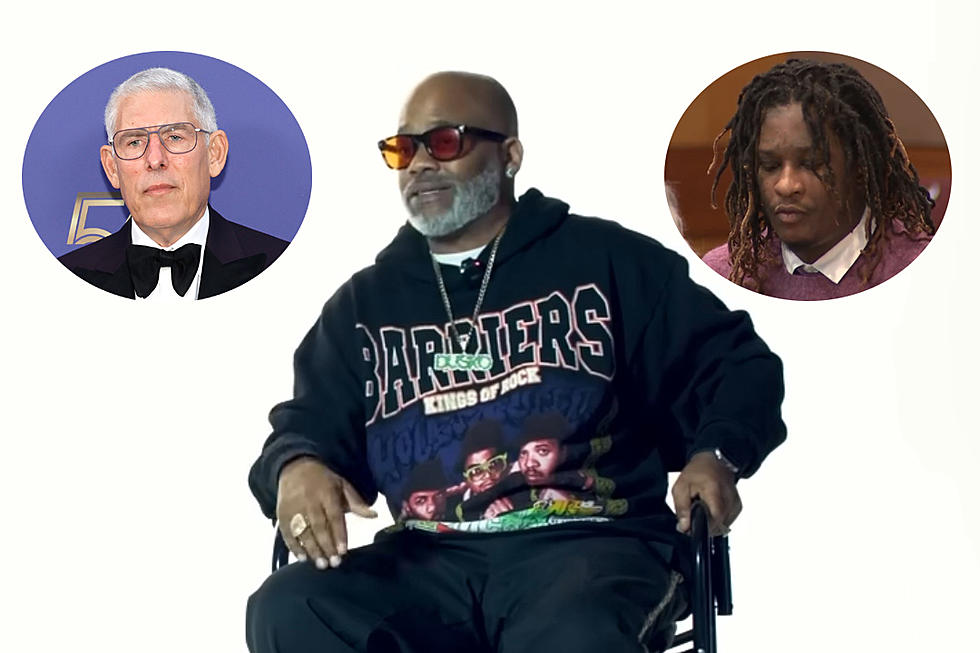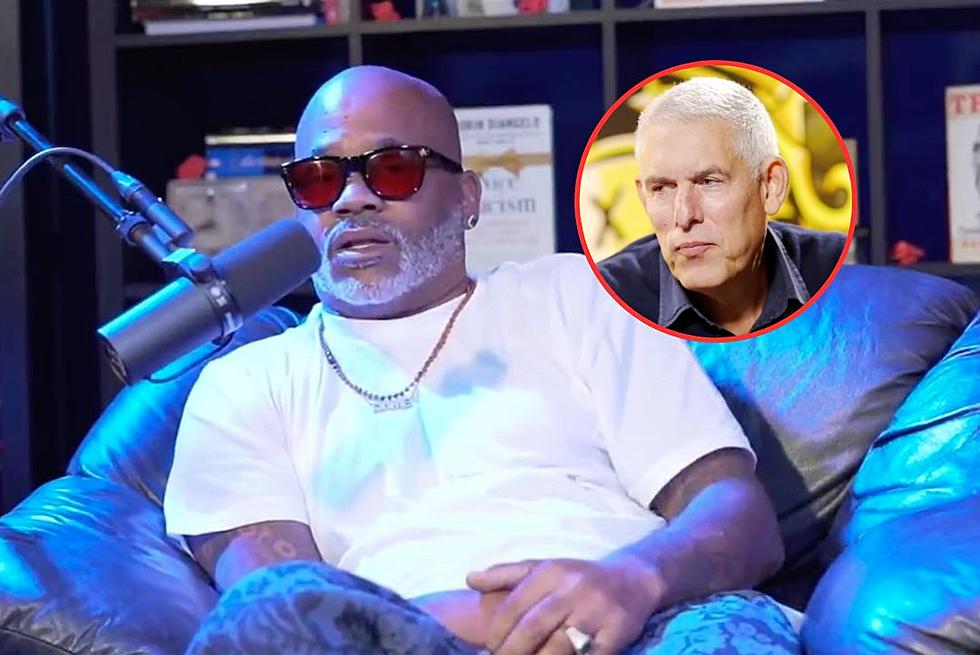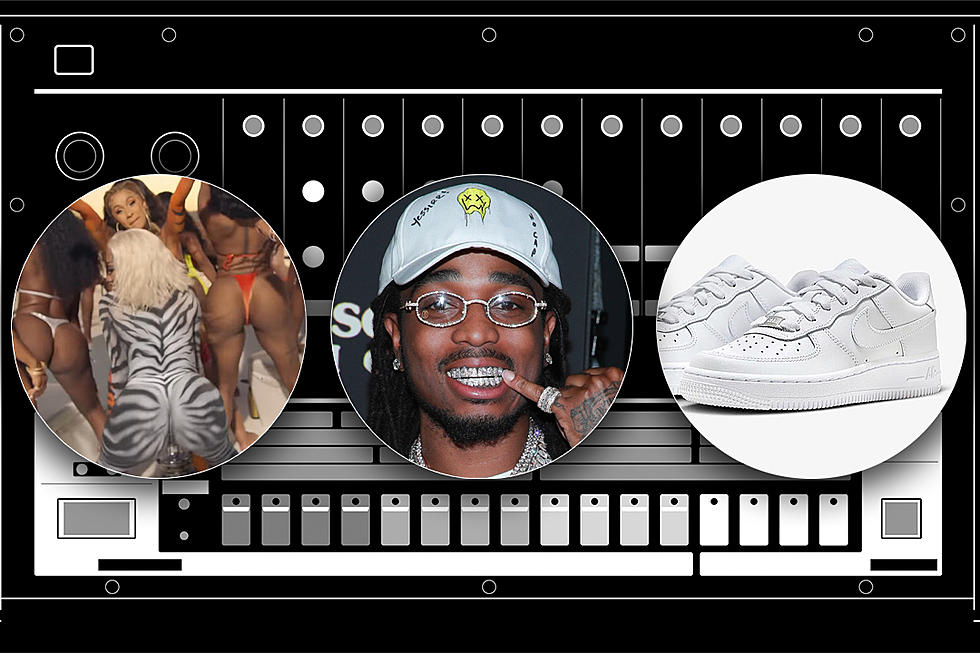
FEATURE: Lyor Cohen, Russell Simmons & Kevin Liles, Foundation
Photography Jonathon Mannion
Lyor Cohen is about to pull a power move. “Is Method Man confirmed?” he asks a publicist. Cohen is inquiring about Meth’s participation in VH1’s Hip Hop Honors, which, this year, is dedicated to Def Jam. Method Man is not confirmed. “What’s Method Man’s number?” he demands in his clipped Israeli accent. Cohen is soon dialing the digits. It goes to voice mail.
“Tical, guess who this is?” It’s an album skit come to life.
Cohen, the former president of Island Def Jam, is working the phones because the label is celebrating its 25th anniversary. It’s also why he opened his Upper East Side townhouse to XXL on Rosh Hashanah for this momentous round table. For the first time ever, Cohen, his Def Jam co-founder, Russell Simmons, and former Def Jam president Kevin Liles will sit together and candidly reminisce (and argue) about hip-hop’s most storied record label.
It’s about to get bigger and deffer.
XXL: Let’s start at the beginning.
Lyor Cohen: I don’t think I have ever done an interview in the same room as Russell.
Russell Simmons: Really?
This is history, guys. Russell’s story has been told many times. Lyor, in 1985 you left Los Angeles, after working as a hip-hop road manager, and came to New York City to work for Rush Management. Was that a risk for you?
Simmons: I could talk about Lyor better than he can. He’s so nice, he might not say it. He was so in love with the music and worked so hard for the artists. He made a lot of money with Run-DMC and then lost all his money on Whodini. He came from a wealthy family but stayed in a raggedy hotel room… He worked for no money for a long time. He was Andre [Harrell’s] secretary. Andre shit on him.
Cohen: No, excuse me. I don’t know what you’re talking about.
Simmons: I do. Andre had Lyor working hard as hell.
Cohen: I didn’t even know Andre at that time.
Simmons: Andre was the vice president of Rush.
Cohen: Wrong.
Simmons: And Lyor came in.
Cohen: Wrong, wrong. You have a really bad memory… I’m going to tell you how Lyor Cohen was invented… When I came to New York, Run-DMC was at the airport, going to London…and no one had a passport… I went straight to the airport with my passport, and since they saw me from that show before, they were kind of gracious with me. There were some terrible things on that trip that I solved, and after that they asked me to be their road manager. That allowed me to get off the floor at that welfare hotel. It also gave me some sort of credibility, because I was sort of goofy—I didn’t look the part… That’s how that happened.
Are they always like this, Kevin?
Kevin Liles: Always. It’s usually worse.
You guys have this good-cop, bad-cop routine down pat.
Cohen: He is such a puss. He would never fire nobody.
Simmons: I’m a screamer.
Cohen: He has a reputation of never firing anyone and bludgeoning them to death and hoping that they would just understand.
Simmons: I have difficulty firing people. Sometimes Lyor would be
the bad guy and I would be the nice guy. People would be like, “That nasty muthafucka Lyor.”
Do you have to be nasty to succeed at this job?
Cohen: Not at all. You don’t have to be nasty. We were never really nasty. We were determined to survive.
Simmons: Kevin Liles can fire people and be their best friend on their way out. “This is what the company has to have. I’m sorry, you’re not performing, and you have to go home.”
That’s not being mean. That’s being honest.
Liles: When you are building a real business, you have to get rid of some of the slackers.
How did the company outlast other labels?
Cohen: It always comes down to the talent.
Liles: It wasn’t just the artists’ talent. Don’t let them sell themselves short. They were the talent themselves, as executives.
Simmons: It was always the talent, but we had faith in the talent. We allowed them to be [themselves].
Cohen: I think Russell’s curiosity was fundamental to our success. He would go to [the Manhattan nightclub] Danceteria with me and meet all sorts of people. He was so interested in other people only so he could…see if it was something we could incorporate and understand. Remember, in the beginning, traditional Black media rejected all of this… The first people to embrace this were Andy Warhol, the fashion people, the Village Voice. One of the reasons for that was because Russell was curious. He wasn’t stuck on stupid. I really mean this, Russell. Your curiosity was one of the key drivers of what made us. Because of that, we were risk takers. Of course, it wouldn’t work unless you had great talent… Grandmaster Flash and those guys wore sequins, leather, and feathers, and it was more aspirational. Something must have clicked for Russell to say, “No one is representing the people who dress like this.” Look, people could go to school dressed like Run-DMC. You couldn’t go dressed as Grandmaster Flash or the Cold Crush Brothers.
The reason we survived was because of the sheer arrogance of the major labels. We did everything wrong. We had no clout. No experience. No money. And we got by. Every single major label rejected putting money into this area, so there was little competition. So we were able, in an organic way, to make a series of mistakes that weren’t deathblows. But the dark period was when I started getting out of management, and Rick [Rubin] had just left, and I signed one bad act after another.
Simmons: What was my man who was “the next Will Smith”?
Cohen: The Don. I signed one worst act after another.
Why did Rick Rubin leave?
Cohen: It was about taste. Rick was a control freak. He felt like he should have been the sole arbitrator of what was creative and that Russell should just be the promotion guy.
Simmons: I wouldn’t call the guy a control freak. He was a hardcore guy, rock-’n’-roll guy. I was an R&B guy. He was making rock. When “I Need Love” [by LL Cool J] came to his desk, it broke his heart.
Was the split amicable?
Simmons: It was amicable.
Cohen: I’ll answer that. Amicable? The answer is yes. It was amicable simply for the fact that Rick picked up and left. There was a lot of tension.
Simmons: He went to L.A. to produce a record and never came back.
Cohen: He thought I was placating him to have more influence.
Simmons: Lyor, you were fighting over influence… It was a huge part of our problem. You were a manager, and I, as a manager, understood what you were doing. You wanted to make a movie. The Beastie Boys didn’t want to make it. Lyor had a great influence on them. He was their manager… Now, when we look back, [Rick] should have made the rest of their records. He made [Licensed to Ill] their best record by far. The best Beastie Boys record since then was “99 Problems.” Lyor didn’t mean to separate them from him. [Lyor] wanted to manage them. That was his job. That, Rick didn’t like that, because they were his babies.
Cohen: [To XXL] I’ll be curious if you ask Rick, when he left in the ’80s, did he think the business of rap music would deteriorate?
Simmons: He will tell you today that rap broke his heart. But he could have always found the Geto Boys. He was busy with [the thrash-metal band] Slayer.
After Rick left, it seemed like Def Jam turned into more of a lifestyle brand, than anything else.
Liles: As an outsider looking in, we always thought that Def Jam was hip-hop. Def Jam wasn’t a label. It introduced me to the S1Ws, fighting for your right to party. It was about a culture, not just a record. I still have my Troop suits [and] my Adidas, [because of] the artists. I became Blacker because of Public Enemy… It was always culture to me. — Interviews Thomas Golianopoulos
For more of this exclusive round table interview and to read Rick Rubin's response, make sure to pick up XXL’s November issue on newsstands now!!!
More From XXL









